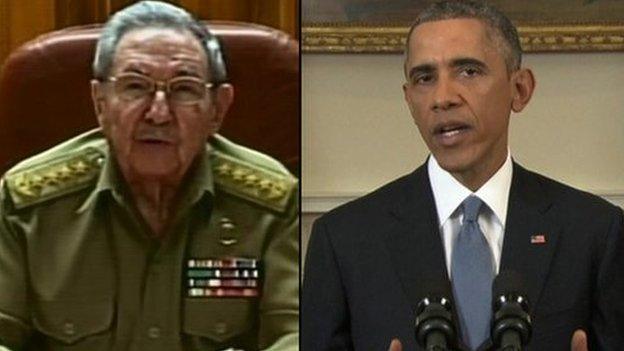'Progress' in US-Cuba talks but no embassy decision
- Published
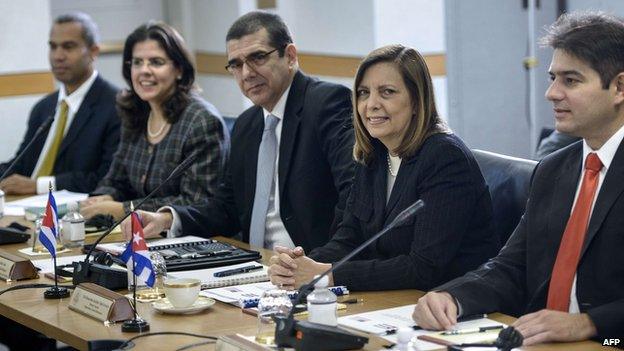
Representatives from Cuba hope to see the country removed from a US terror list
Cuban and US diplomats say they have made progress in talks in Washington to restore full relations between the two countries.
At issue is the opening of embassies in the two capitals and Cuba's hope it will be removed from a US terror list.
The Cuban delegation was optimistic that problems could be overcome.
Likewise the head of the US delegation said she hoped that the embassies issue could be resolved before a regional summit in Panama on 10 April.
It is hoped that Presidents Barack Obama and Raul Castro will shake hands in a symbolic sign of improved relations at the summit.
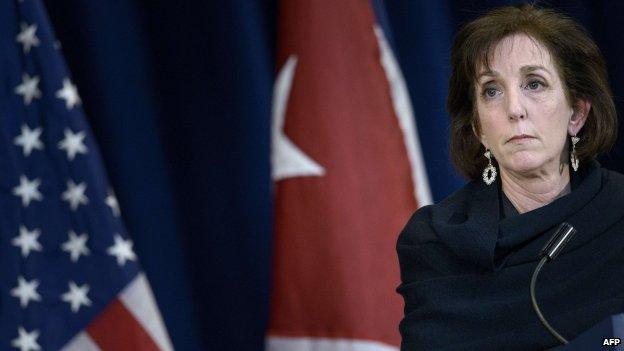
US delegation head Roberta Jacobson expressed optimism that the embassies issue could be resolved before the April regional summit
This is the second round of talks between the two countries since a rapprochement in December.
The two presidents made a surprise announcement saying they would seek to re-establish diplomatic ties, ending more than 50 years of ill-will.
In April, Cuba will attend the Summit of the Americas for the first time.
The Obama administration wants to see a US embassy opened in the Cuban capital in time for the summit. It also wants Cuba to take steps to improve human rights and internet access, stop human trafficking and take steps to improve civil aviation.
However, Cuban negotiators want to see their country removed from the United States' list of state sponsors of terrorism.
Remaining on the list makes it impossible for Cubans to conduct banking and other business transactions in the US.
Cuban official Vidal Josefina Vidal, who heads the Cuban foreign ministry's US division, said her delegation was told the issue was being considered and representatives of both countries would be in "permanent connection" on multiple sticking points in the next few weeks.
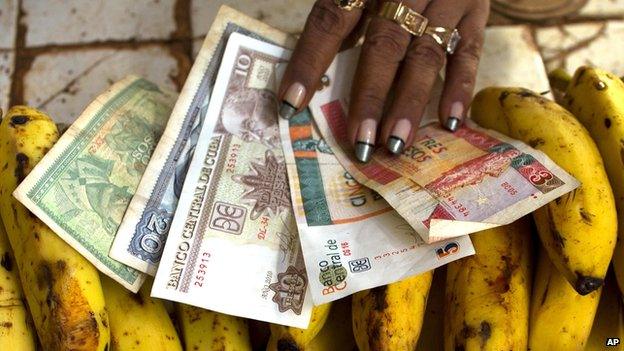
An American economic embargo on Cuba remains in place
US delegation head Roberta Jacobson said she was optimistic that the embassies issue could be resolved in time for the Summit of the Americas.
Officials in Washington say they are reviewing Cuba's status, but have yet to make a decision. They have warned that many disagreements still remain.
Speaking at a news conference on Friday, Secretary of State John Kerry drew a line between the opening of embassies and the presence of Cuba on the terror list.
Claiming that it supported the Basque separatist group Eta and Colombia's Farc rebels, the US labelled the island nation a sponsor of terror in 1982. A recent report issued by the US State Department notes that these ties are weaker than they previously were.
"The state sponsorship of terrorism designation is a separate process. It is not a negotiation," Mr Kerry said.
"It is an evaluation that is made under a very strict set of requirements, congressionally mandated, and that has to be pursed separately."
In the wake of December's deal, the US has relaxed some trade and travel restrictions, but a major economic embargo remains in place.

Analysis by Thomas Sparrow, BBC Mundo, Washington
The US delegation is trying hard to shift attention away from some of the more substantive political issues that it will have to resolve before it can fully normalise relations with Cuba, such as the presence of that country on its terrorism list.
For now, US officials have stressed that they are "entirely" focussed on working out the mechanics and the paperwork needed to open embassies, which could make this second round of negotiations "disappointingly workman-like in their nature," they say.
For them, having diplomatic ties precedes negotiating on some of the thorny issues between both countries, such as Cuba's human rights' record.
Cuban officials, on the contrary, have gone beyond the embassy logistics and have reiterated some of their long-standing demands, which include being removed from the terrorism list before "significant progress" can be made.

- Published29 August 2023
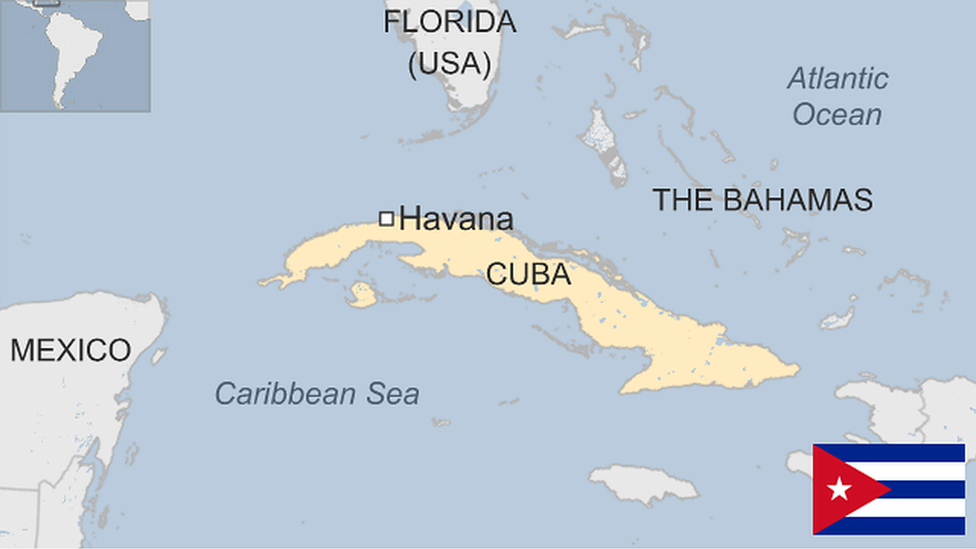
- Published21 January 2015
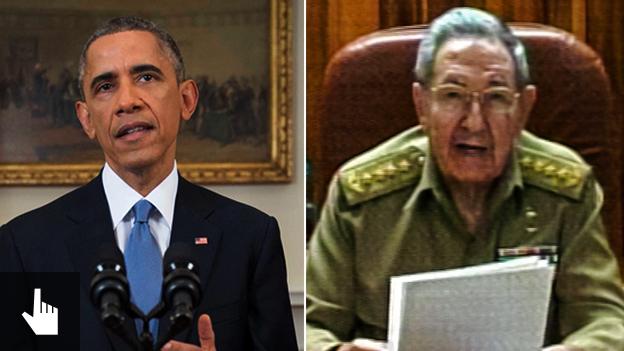
- Published1 January 2015
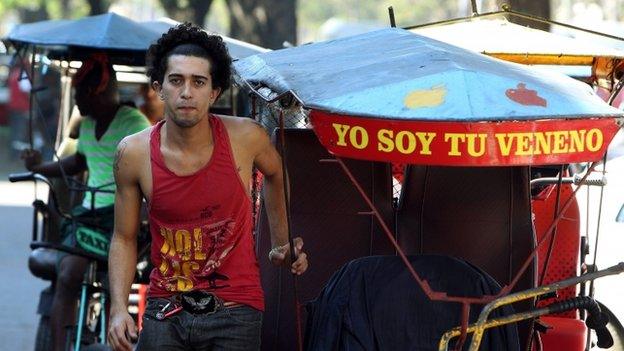
- Published17 December 2014
